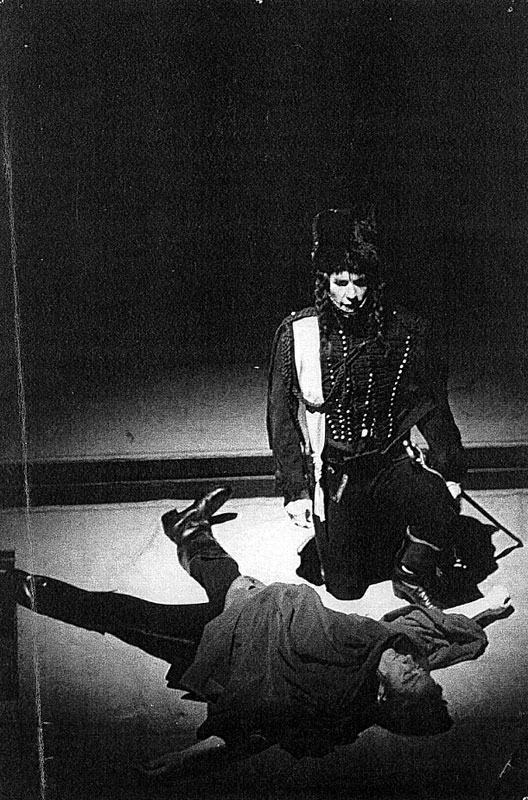CORIOLANUS (1963)
The giant explained his approach: 'We can't have you all flapping around in togas; always so tricky working out who's a senator and who's a soldier, let alone of what rank. Best to go for uniforms and boots and plumes, don't you think?' So, he set ancient Rome and Antium late in the 18th century, with Neville in a gold breastplate and white buckskins and me, all in black, with a pigtail and drooping moustache. Guthrie soon realised that I was nervous and probably over-parted, so he kindly suggested that we should work in private each day for 20 minutes, before any of the others were around. He indulged me with praise, fed my confidence and, only when I was fully prepared, did he allow me to work with the rest of the cast. I'd been in the business for only 2½ years. It took another 7 or so, before I fully dared to make a fool of myself in the rehearsal room. Guthrie crucially pushed me on the way at the dress-rehearsal in Nottingham. Aufidius doesn't have much to do early on, so I walked-on in a couple of crowd scenes, hidden behind a banner. I enjoyed that and was feeling relaxed. But at the play's climax, Aufidius is centre-stage, having betrayed his dearest partner/rival and had him mercilessly slaughtered in public, before defiling the noble corpse by stamping on it. And then! 'My rage is gone and I am struck with sorrow...' This reversal is usually played with heavy political irony but Guthrie disagreed, as always, with the conventional. He had directed me to kneel and, embracing Coriolanus, to keen out a wail of true despair, turning hate instantaneously into grief. Throughout rehearsals, I had funked this moment, which would have been a gift to a more confident actor. Now, with only 24 hours before opening, Guthrie would have none of it. As I failed yet again, he charged down the aisle, clicking his fingers: 'Stop. Now look. We have reached the most exciting point in an epic story. If we haven't convinced the audience by this time, that they've been witnessing great events and that the theatre is larger and more unexpected than life; if they can't see a stage full of God-like heroes and if they aren't lifted out of their seats with excitement - then we are cheating them and ourselves and Shakespeare. Once more please, and properly.' I tried to live up to his challenge and it worked well enough. By the first night, next day, I didn't have to try quite so hard. Confidence is almost everything in acting.
|
| Ian McKellen's Home Page |


